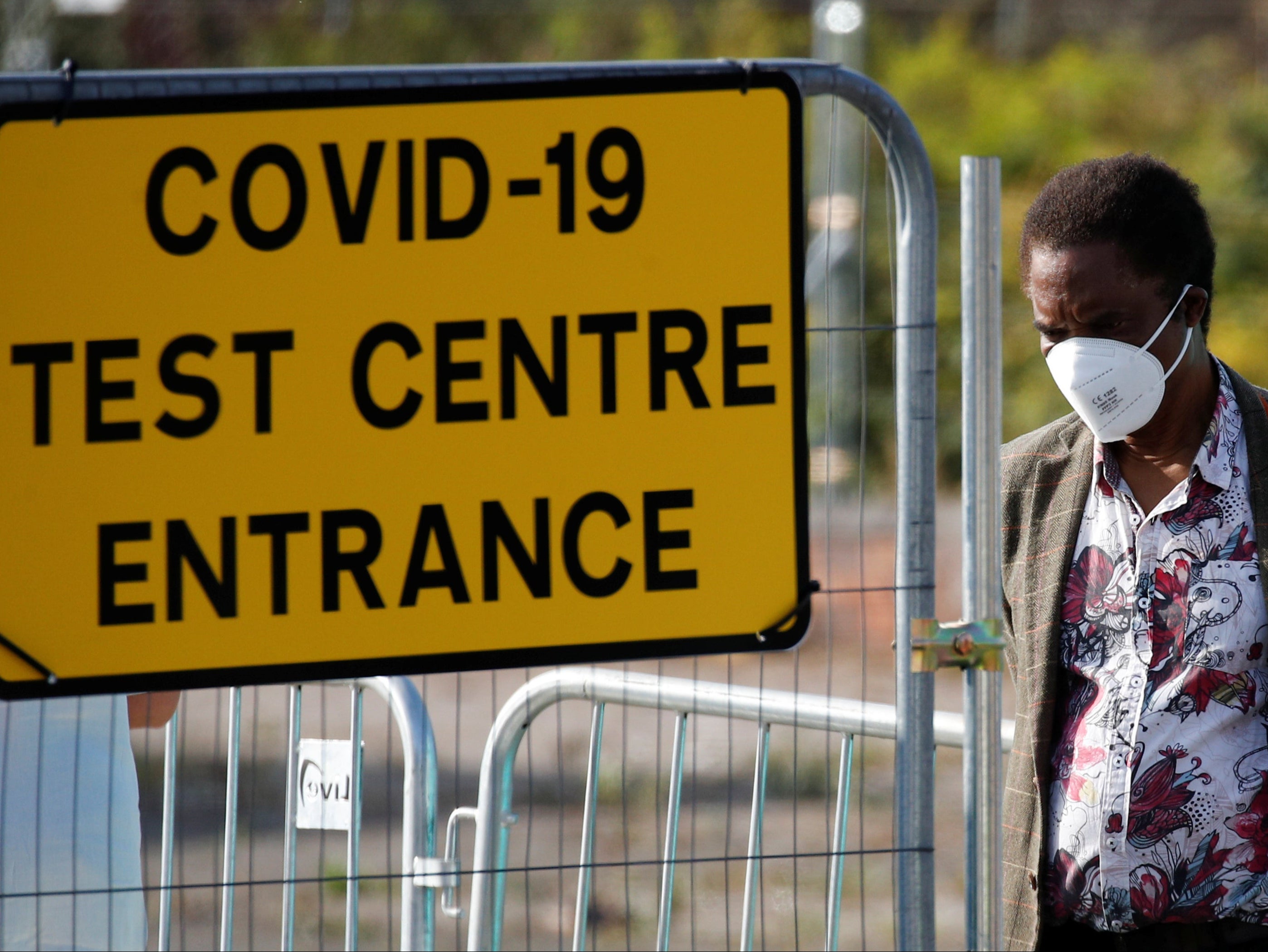Our government’s obsession with outsourcing is harming the UK and costing lives
Contracting external parties to make PPE, run our drive-in testing centres, and build a Test and Trace programme didn’t work. It’s time to learn from these expensive mistakes


Your support helps us to tell the story
From reproductive rights to climate change to Big Tech, The Independent is on the ground when the story is developing. Whether it's investigating the financials of Elon Musk's pro-Trump PAC or producing our latest documentary, 'The A Word', which shines a light on the American women fighting for reproductive rights, we know how important it is to parse out the facts from the messaging.
At such a critical moment in US history, we need reporters on the ground. Your donation allows us to keep sending journalists to speak to both sides of the story.
The Independent is trusted by Americans across the entire political spectrum. And unlike many other quality news outlets, we choose not to lock Americans out of our reporting and analysis with paywalls. We believe quality journalism should be available to everyone, paid for by those who can afford it.
Your support makes all the difference.The current rise in the coronavirus cases could cause a winter of devastation in the UK. Having experienced the initial calamity of the Covid-19 outbreak in early 2020, there was an opportunity for the UK government to analyse and learn from the understandable mistakes that occurred in the initial phases of the pandemic.
However, the UK government’s early response to a recurrent rise in Covid-19 cases has overlooked a cardinal rule in medicine – analyse and learn from one’s mistake and do not repeat the same again. The government’s failure to learn from its previous attempt in controlling coronavirus is apparent in one particular aspect that has become an addiction in UK politics: Outsourcing.
Today sees the, relatively quiet, launch of the new version of the government’s Covid-19 contact-tracing app for England and Wales. This will undoubtedly be presented as a panacea, but the plain fact is that without a competent testing system in place to identify cases promptly and accurately, even the most sophisticated, functional app is useless. With a predicted usage of around 10 per cent in some places and a cost of around £35 million, plus £10 million spent on developing an abandoned model, it is the latest example of resources wasted on outsourced services.
With a limited public purse, the refusal to acknowledge the potential failings of outsourcing is increasingly harmful. Money is not being directed towards the areas that need it most, resulting in the NHS, bearing the brunt. This will hamper the response of the UK to the threats of Covid-19.
The NHS budget in England was approximately £115 billion in 2018/19. The cost of the failing of the Test and Trace programme has so far been £10 billion, nearly 9 per cent of the total budget for all of the NHS services. The NHS budget pays for all hospitals in England (including all their lab testing), GP services, medicines, mental health, ambulances, community nursing, planned surgeries, public health campaigns, and sexual health services. This testing failure has resulted in further lockdown measures, and another blow to the economy.
The Doctor’s Association UK called for a public inquiry into the coronavirus response in April 2020, regarding the outsourcing failures on making PPE available for NHS and care workers. So far, an inquiry has not been forthcoming. The negligence to not initiate an inquiry represents a lost opportunity for the UK to learn from previous missteps and improve its response to Covid-19 this winter.
In recent weeks, the government’s testing operation has also come under scrutiny, with regards to access and delivery. Once again, these areas were heavily outsourced. This involved Deloitte managing the logistics of national drive-in testing centres and super-labs while Serco and Sitel were used to run the contact tracing programme (though for reasons unclear it was given the moniker “NHS Test and Trace”), presided over by former CEO of Talk Talk, Dido Harding.
The problems with these systems, both in terms of lab capacity and logistics, were acknowledged by prime minster Boris Johnson and his health secretary Matt Hancock, although the latter did seek to place the blame on the public seeking “unnecessary tests” rather than the system that had been promised to be “world-beating” but failed to match up to its billing.
Very recent developments have seen NHS hospital testing now rationed, and hospitals having to seek permission for extra tests from the outsourced Test and Trace programme. This, despite the earnest insistence from chancellor Rishi Sunak that the NHS would have “whatever it needs to fight the outbreak”. The reality is that hospitals are having their funded limited when it comes to testing.
This system of outsourcing uses public funds to pay for privately-run, failing operations, rather than utilising the world-leading experience present in the NHS.
Although this system has failed, there is still a drive to throw even more public money at these private enterprises. The concept of outsourcing has become hypernormalised in the UK government. In order to achieve an effective response to the ongoing health emergency, we must learn from the mistakes of outsourcing. Failing to do so may result in public catastrophe and we’ll have to live with fact that much of it would have been avoided if the government was held to account.
Dolin Bhagawati is a London-based neurosurgeon and editorial lead for the Doctors’ Association UK




Join our commenting forum
Join thought-provoking conversations, follow other Independent readers and see their replies
Comments